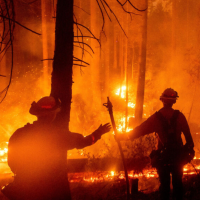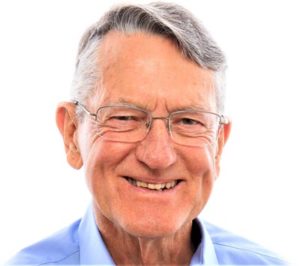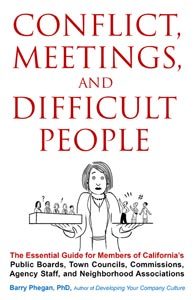 Earlier this month I was in Ohio for a grandson’s high school graduation. It was truly wonderful seeing him and the family and being driven by him to visit the college he’ll attend next year. He still has the same adorable smile (see left) and lived most of his life with his great-grandmother who turns 100 in December 2023. She is very active, still drives to the supermarket (daytime only) or orders home delivery, keeps current on events, and is a keen thinker. I asked her what her key is to a long and satisfying life. She immediately replied, “Don’t worry.”
Earlier this month I was in Ohio for a grandson’s high school graduation. It was truly wonderful seeing him and the family and being driven by him to visit the college he’ll attend next year. He still has the same adorable smile (see left) and lived most of his life with his great-grandmother who turns 100 in December 2023. She is very active, still drives to the supermarket (daytime only) or orders home delivery, keeps current on events, and is a keen thinker. I asked her what her key is to a long and satisfying life. She immediately replied, “Don’t worry.”
I just had to pass her wisdom along, partly because that’s exactly how I feel — don’t worry. I’ve let go of our media’s firehouse of disasters-to-worry-about. They don’t care about me and I’m not going to give them my time and attention. They turn on their disaster firehose because they know it’s human nature to pay attention to anything that might endanger us. That instinct or impulse was invaluable on the African plains where an unnoticed lion, crocodile, or hippopotamus could end your life.

 Anxieties
Anxieties
But we don’t live on the African plains, we live in super-safe suburbia. Of course, the media doesn’t want you to feel super-safe. That doesn’t sell supplements, security systems, or the sedation of sports. Corporations can’t make money from true happiness, only from the promise of it. They need you anxious and alert, so instead of lions and crocodiles they’ll give you distant wars, the political battles of Washington DC, potential financial tsunamis, police brutality, planet-wide climate disasters, AI-controlled robots to steal your job, and so on. The potential list is endless and what is selected for the next panic-of-the-moment seems quite arbitrary, perhaps reflecting more the media’s topical fashions than objective social needs.
These are each important issues but they are presented as catastrophes about to happen. That’s a tested formula to make readers anxious and attentive. Additionally, events are often presented as arguments about what to do, and simplistic positioning of opposing sides. Rarely do articles explain the situation in full context and the always complex human background leading to the issue. How boring is that! The media prefers fights, not understanding, because we humans are attracted to conflict, and the media is in the business of attracting readers.
We Choose to Worry
Do you know the Bobby McFerrin song, “Don’t Worry Be Happy,” or the Monty Python song, “Always Look on the Bright Side of Life ”? They may not be your particular cup of tea, but they certainly reflect the kind of choice we each make about how we will be in the world.
It may not feel like a choice, but it is. We select where we will be in the range from happy to anxious. For those who have swallowed the media’s hemlock, being happy might seem like idiotic denial, and I might sound like a doddering fool.
Yes, it may look difficult or foolish to be happy in a Culture of Anxiety, or as I mentioned in a previous blog, in a Culture Against People. But I can assure you, from direct personal experience, that it works.
Cyclops
 It’s bizarre that we created a culture in which we handed overwhelming power and control to fictitious beings called corporations, knowing that they have no interest in us, the people who created them — except as buyers of their products. But each of us, and the culture we created, is full of such ironies and contradictions. We are emotional tribal animals with a skim-coating of reason. These human-created one-eyed corporate cyclops lust only for money. Corporations aren’t interested in you and me, our society, or our planet, except as sources of cash, that they extract with great skill.
It’s bizarre that we created a culture in which we handed overwhelming power and control to fictitious beings called corporations, knowing that they have no interest in us, the people who created them — except as buyers of their products. But each of us, and the culture we created, is full of such ironies and contradictions. We are emotional tribal animals with a skim-coating of reason. These human-created one-eyed corporate cyclops lust only for money. Corporations aren’t interested in you and me, our society, or our planet, except as sources of cash, that they extract with great skill.
I don’t know how I came to be at this place where life is a stream of happiness, but I am. Partly it’s because I’m retired with the luxury of choosing to do what makes me happy.
 Living is Now
Living is Now
I love hanging out with my grandchildren. Before the pandemic, I’d promised each of them that when they turned 13, we could go anywhere in the world for two weeks. The pandemic shot holes in that plan, moving the age forward two or three years to 15 or so. This summer, a grandson and I will spend two weeks in England, and I recently returned from five days with another. Time with them, and with my second graders at school where I volunteer as a reading coach, is heaven on earth.
I leave the abstractions of distant events and the ideologies of the culture wars to those who find emotional safety in staying away from enjoying the direct experience of living. How can we be so lucky to have landed on this life-friendly ball of rock careening through space? I’m stunned, every day, at the beauty of it all and how precious and rare is our transient moment.
Stay engaged, but please don’t worry.
Thank you for reading.
Please send your comments and suggestions.
Barry
Add Your Name below to my list to know when I have posted a new blog.




